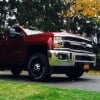Intake manifold off with pics of intake valves with deposits.
-
Recently Browsing 0 members
- No registered users viewing this page.
-
Forum Statistics
246k
Total Topics2.6m
Total Posts -
Member Statistics
-
Who's Online 18 Members, 0 Anonymous, 1,719 Guests (See full list)














Recommended Posts
Archived
This topic is now archived and is closed to further replies.